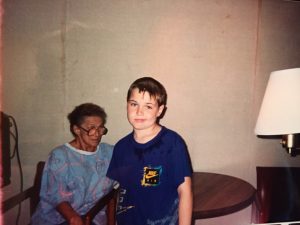The Link Between Education and Health
“Across America, people are falling ill and dying young. These men and women have something in common. In fact, they stand out because of something they don’t have: a college degree.”
In a recent analysis conducted by Princeton University, economists Case and Deaton discovered that those who have not attended college live shorter, unhealthier lives when compared to those who attended college.
In a Washington Post article published about these findings, author Karin Fischer noted that the reasons behind this discovery are not simply revolving around money- pain, stress, and social dysfunction all contribute to the problem.
Starting in the late 1990s, cases of illness and death started to increase for white men and women aged 45-54 who did not have a college degree. Case and Deaton noticed these rising death rates among those middle-aged individuals and saw a connection for less-educated adults of all ages.
In Hillbilly Elegy, J.D. Vance noted how difficult it was for people of a poorer background to attend college even if they had aspirations to (pp. 64-65). He often felt like an outsider at Yale Law School because he was exposed to people of completely different backgrounds than him, but he was also thankful for the incredible opportunities and success that his higher education brought him (pp. 204-7).

In the Princeton University study, they also noticed that life expectancy was increasing for those with college degrees.
“While there’s long been a gap in health outcomes based on education, it now looks more like a yawning gulf,” Fischer mentioned.

Those with stable, well-paying jobs are more likely to be healthier in the United States, especially since the United States holds a system of employment-based health care. However, the relationship between education and health is not strictly reliant upon solely socioeconomic status.
Case and Deaton have their own predictions as to why this is happening. They connected the mortality rate among those without college degrees to rising deaths from drug and alcohol abuse and suicide- what they are calling “deaths of despair.” Drug and alcohol addiction were also reoccurring issues that J.D. Vance wrote about in his memoir.
“Their theory goes like this: Over the past several decades, the economy has shifted, eliminating many of the jobs that once went to people without college degrees. The share of men in their prime working years, ages 25 to 54, who are not in the work force has more than tripled since the late 1960s. Those who do have jobs are unlikely to be pulling in the same sorts of wages as generations before them.”
According to Case and Deaton, those who do not have college degrees have reported being unhappier than those with college experience. From this, they may turn to drugs and/or alcohol as a coping mechanism. Rural America was especially negatively impacted by the changing economy, and the people in these areas tend to be white, older, and less-educated than those living in cities and suburbs.
Experts are not saying college is the answer for all of these striking issues, especially since college tuition is too expensive for many affected by these findings. Instead, they recommend changes in policy that “could help ease the disadvantage that comes from not having a degree.” Case and Deaton also want to alter the connection between employment and health care, where education will still matter, but policy changes could change its strong connection to health.
Even though more people today are attending college than those in the past, it is important to consider the effects it has on those that are not able to attend college.
Gillian Keebler
Student Assistant, Go Big Read Office